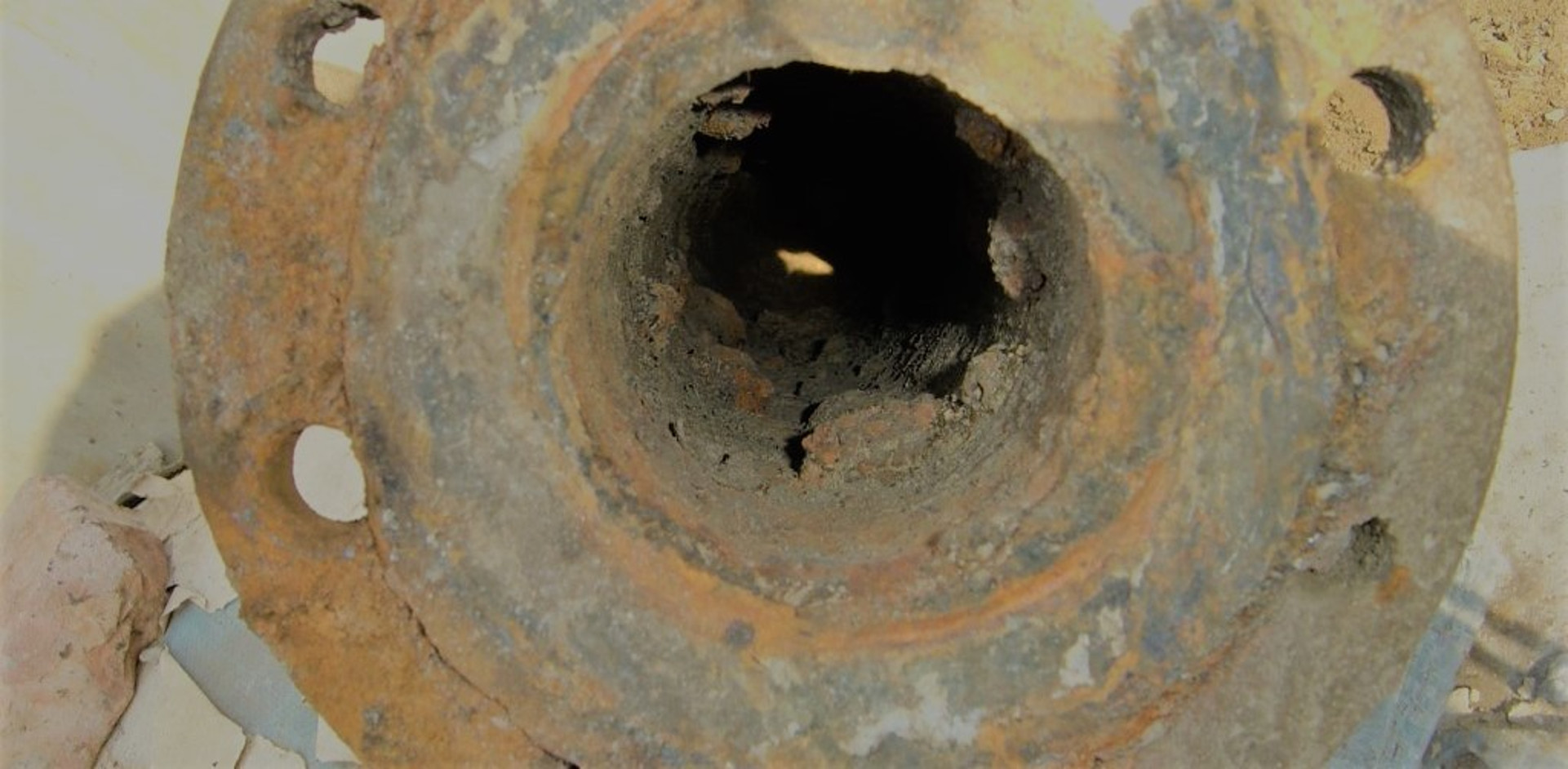Corrosion is seen as one of the biggest problems for the assets in the Oil and Gas industry. Most of the leaking and malfunctions in machines are caused by corrosion. Certain machines and pipes have a lifetime of fewer than 2 years, due to aggressive substances in the hydrocarbon. Constantly exchanging parts causes exorbitant costs.
There are many different types of corrosion in oil or gas pipelines. Our description can only cover the most common types, were we have reliable experience and data. Apart from that, we are only able to work on corrosion on the inside of the pipes, corrosion of the outer surfaces cannot be treated with our methods.
Nowadays, high-grade steels are used in order to avoid the risk of corrosion. Often this is only done piece by piece, so some parts of the system are more susceptible to corrosion than others. Additionally, the composure of the crude can change over time and with it its impact on the tubing’s surface and the corrosion
Lowering the Corrosion rate in oil assets
In general, our approach is to reduce or completely stop any kind of corrosion. Not only in water, but also in Hydro Carbon applications. In several cases we were able to prove this in practice. But for some types of corrosion we have had no application in practice so far. Sometimes it is also difficult to analyse the data or there is a duty of confidentiality so that we cannot inform you about it.
Nevertheless, in many cases and applications worldwide we have been able to significantly reduce the corrosion rate. In several cases, we have started with a corrosion of over 10 mpy and brought it to a constant below 1 mpy. This means that with Merus rings the corrosion is less than 10% of the initial value.
Corrosion due to water
Crude oil often contains a high proportion of water, which causes corrosion in pipes. Water is used to pressurize the oil reservoir using special water injection wells. Produced water, i.e. water from the oil well, is used. Seawater or brackish water, near the sea or at offshore locations. Many of these waters even exacerbate the problems. There are microorganisms or other corrosive components in the water. All of them contribute to the problem.
With our technology, we are able to lower the „simple“ forms of corrosion significantly or fully eliminate them. In industrial water treatment, we successfully stop corrosion in many cases. In terms of hydrocarbon, we can speak about several cases with reliable data.
Corrosion due to H2S
As described above, from the theoretical point of view Merus should be able to reduce or stop also the H2S Corrosion. Only we cannot provide reliable data as there have not been enough cases to monitor.
Corrosion due to CO2
CO2 corrosion one also can be found in water applications. There we treated CO2 successful. Monitoring is a big issue, and we have to get the right setup to proof our results.
Corrosion due to SRB
SRB or „Sulfate Reduction Bacteria“ are anaerobic bacteria, which are able to survive in crude oil. They are causing various problems in pipelines and machines. These bacteria „eat“ the sulfate of the steel and produce H2S as a metabolic product. They not only weaken the structure of the steel but also increase the risk of destructive corrosion.
Once there is pitting in the pipe, the bacteria settle in this environment and even increase the problem. Here they live and reproduce undisturbed spreading in the whole system.
How can the Merus Technology get rid of this problem? Reducing corrosion or also deposits in the piping system reduces the habitat for any bacteria. They are dependent on safe places like pitting holes or dead legs in the system. Once the habitat is gone, the amount of bacteria diminishes over time. As no constant flow is needed to transport the Merus Oscillations, it works in every part of the tubing and machinery. Microbially Induced Corrosion (MIC) is therefore reduced lastingly.
Conclusion
Every plant and every system around an oil and gas well is designed individually. Also, the crude differs from place to place and having a „one solution fits all“ product is difficult. We therefore always discuss individual cases and give advice on how to treat each case.
To build up a fair business relationship we always start with a trial phase in which we install our solution and monitor the effect. In the second phase, the installation can be adjusted if necessary

